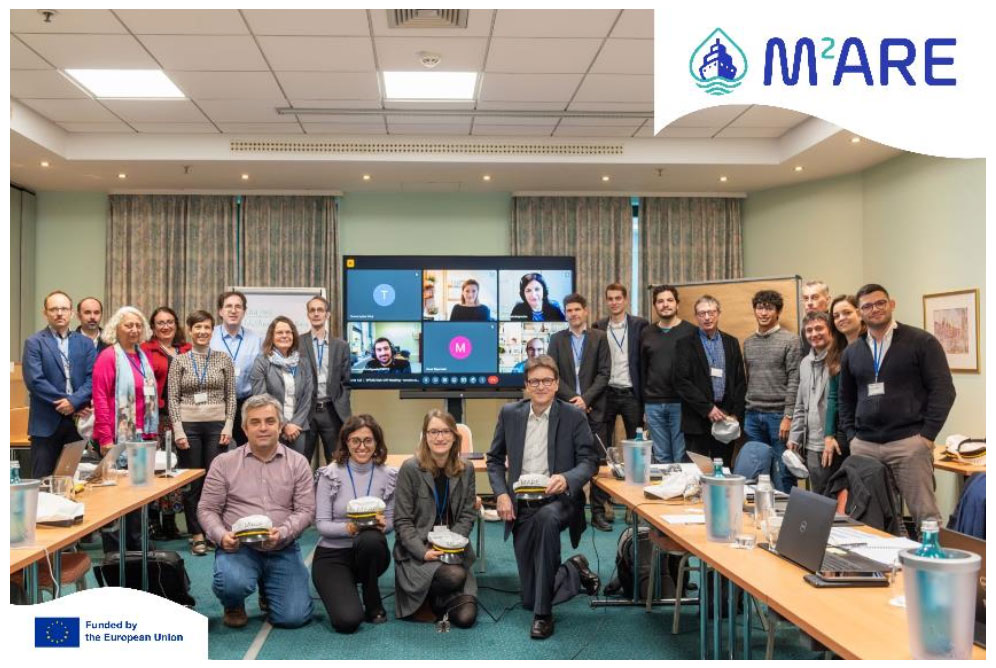The consortium consisting of Air Liquide, MAN, ETA Florence Renewable Energies and four academic partners (CERTH, Sant’Anna, LRGP and TU Delft) announces the official launch of the M²ARE project on December 1, 2023. The project aims to develop and demonstrate a novel process for “Maritime Methanol”, a new grade of low-cost low-carbon methanol based on biogenic CO2 and renewable H2, to support the needs of the global shipping sector in reducing their CO2 emissions. Today, waterborne transport is driven primarily by diesel engines (around 99%), using mainly heavy fuel oil (HFO), which tends to be high in sulphur, and middle distillate fuel (MGO). In 2019, shipping represented around 3-4% of all EU GHG emissions and around 13% of the transport sector.
In response to the high demand for maritime decarbonized fuel, M²ARE project will deliver a methanol synthesis demonstration plant by mid-2027, using the existing pilot plant located at the Air Liquide Innovation Campus Frankfurt, Germany. This “Maritime Methanol” will be suited specifically to engine usage and aims at a CO2 emission reduction by more than 80% compared to conventional maritime fuels on a well- to-wake basis (the entire process of fuel production, delivery and use onboard ships, and all emissions produced therein).
The expected outcomes of the M²ARE project include:
- The assessment and qualification of bio-CO2 from sources such as biogas, biomass combustion, bioethanol, and pulp & paper plants for their feasibility in the methanol synthesis.
- An improved methanol process using a new reactor system based on process intensification and a simplified methanol purification.
- A unique process to convert bio-CO2 with fluctuating H2 coming from renewable energy sources into flexible grades of Maritime Methanol that will be validated through a series of engine tests.
- A digital model of the whole value chain from CO2 and H2 through to the maritime fuel will be developed to de-risk the technology and boost its scale-up.
The M²ARE project is launched by a consortium with broad expertise across the entire value chain. With this project, the consortium is pushing the boundaries of the current state-of-the-art technology and knowledge required to deliver new solutions to meet ambitious economic and environmental targets for using low- carbon methanol in the maritime sector. The project also contributes to achieving five of the United Nations Sustainable Goals.


